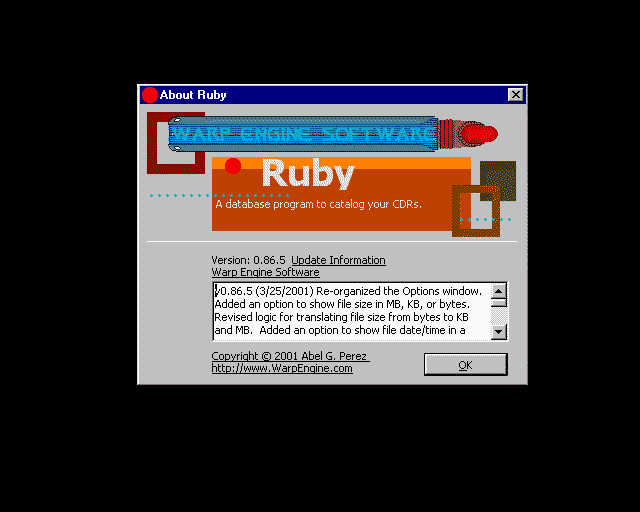
This issue I'll have a look at another free piece of software. Yep,
free!! Why pay money for something if there is a perfectly adequate
program available that doesn't cost anything except for downloads
costs. Again, I used CNet. The actual address is, of course,
http://download.cnet.com/ And is one of the download sites I'll head for first when I want to
search for a piece of software. This time I thought I would like a
database that would keep track of all my files, more especially my
mp3 files! As per usual, there are plenty of alternatives for this and after
discarding the professional and shareware ones; I was left with a
handful of freeware programs. The one I decided to try out was Ruby.

Ruby was written by Abel G. Perez as you can see from Screenshot No1
and he calls his software company Warp Engine Software. Amazing how
many authors use S.F. terms when it comes to programming. If I
remember correctly, doesn't a famous Amiga author do the same?
STRicq strike a chord anywhere? Let's not get diverted in other directions.... Ruby is a 4mb download, so isn't that hefty for anyone to get. The
file comes down as an exe. Simply double-click to install and answer
the usual questions.. where to put it etc. The software isn't ad
aware or anything like that, so is free. Have a quick read at the text file that comes with it and then launch
Ruby. When it starts, Ruby has a garish red coloured background, but, fear
not, this can be changed.
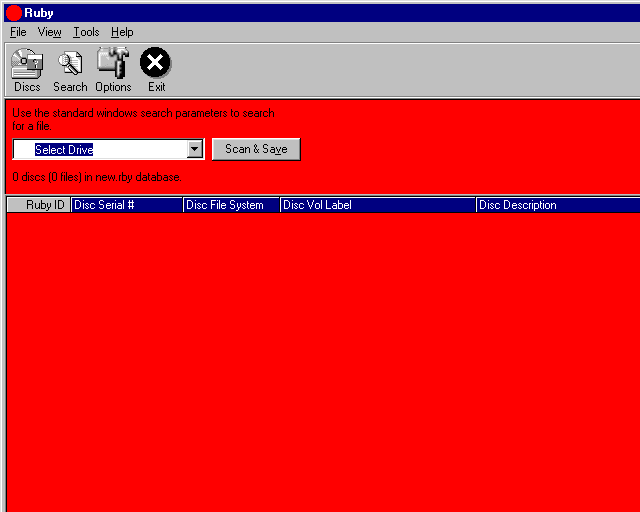
Bright, isn't it? Right, go to options. Here are the four option screens and you can
see what we are able to configure. You can choose the various
columns that Ruby will display and can decide if it is only CD-Rom
drives you wish to scan from. It also lets you get rid of that
garish red!! You can password protect your database if you want and
can even specify where you search inside the database. Not bad for
freeware.
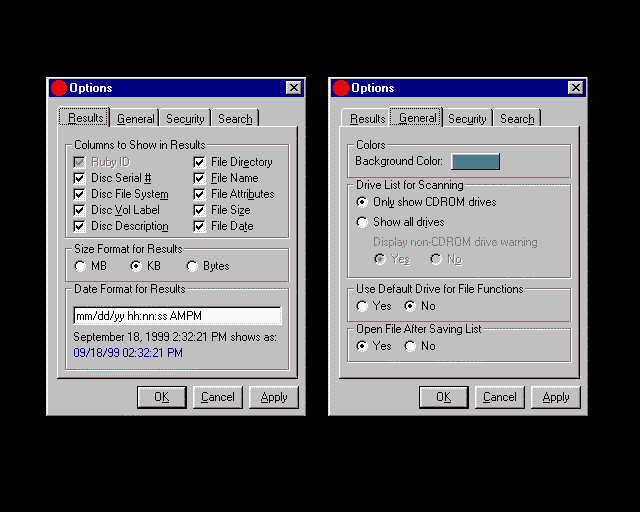
After this you can start a new database calling it what you will.
Just for the Hell of it, I called mine Mp3. Thinking up imaginative
names isn't my forte and I prefer straightforward names that help
identify them to me.
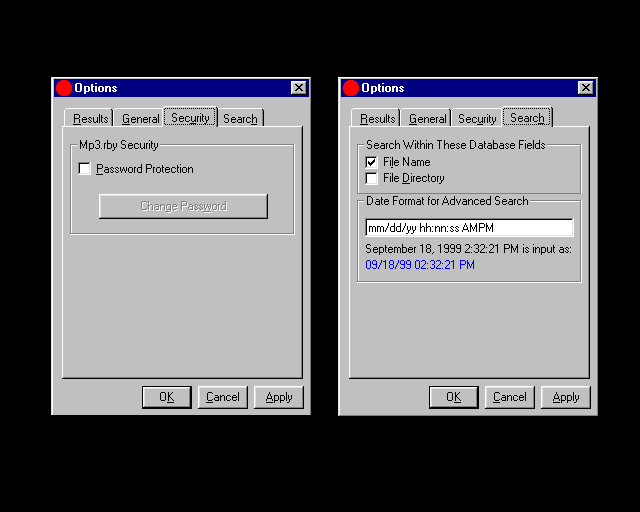
Putting a CD in the drive, you click the scan and save and in a
couple of seconds, you have a new entry in the database. Do this
with all your Mp3 Cd collection and that's you finished. Lets look
at how this turns out. We can now view a list of Mp3 Cds.
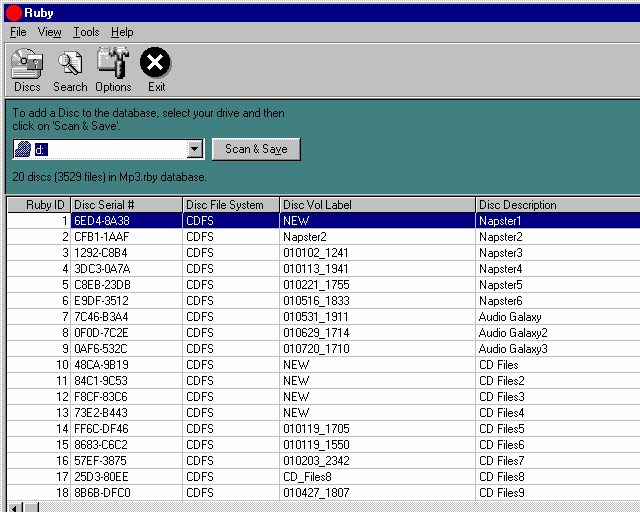
Right clicking on any disk list will allow you to see the disk
details e.g.
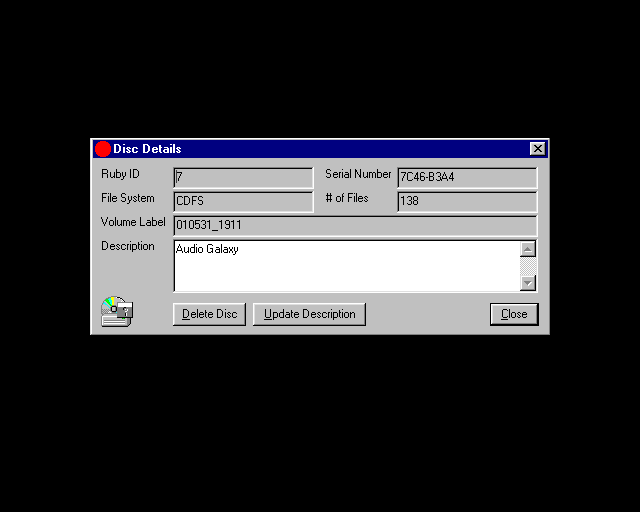
The disk contents. Or allow you to delete the disk from the database.
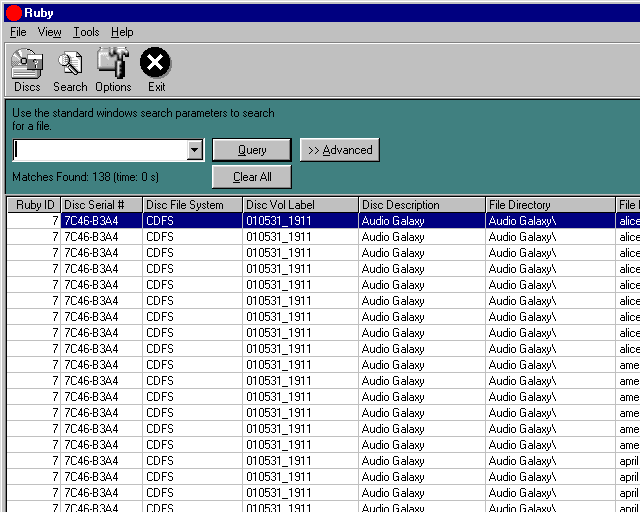
Clicking the search will bring up a text box and using wildcards will
let you search all the disks loaded into the database and display the
results.
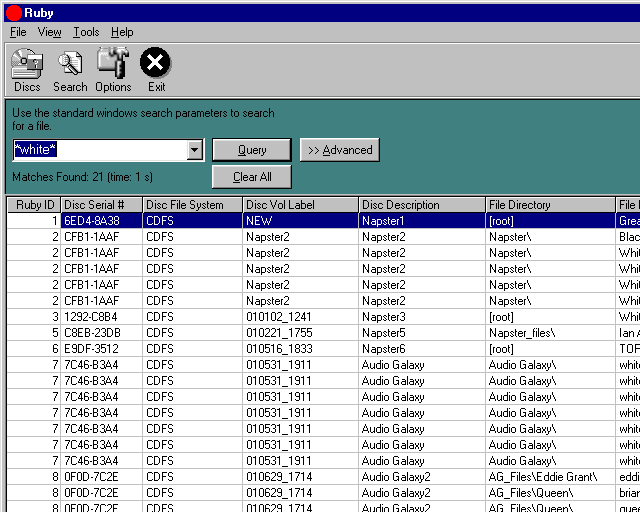
Impressive, eh? If you search for a file and then put the disk it belongs to in the
drive, you can right click on the file and play it from the database
or explore the disk etc. Nice and easy! The interface is clean and fairly intuitive, I didn't find any need
for docs for this program and a few minutes clicking on various parts
soon got me going. The database as I said earlier isn't limited to
either Mp3 files or even one drive, although that was all I was
looking for. It doesn't have CDDB capability for audio disks, but I
don't have any problems with that, I don't keep my audio disks in
Ruby anyway. For the price, free, the ease of use, this is an excellent piece of
software that does exactly what I want it to do. If, like me, you have an extensive Mp3 collection, give this a whirl.
You might find it's the answer to your prayers!!
